
When it comes to home remedies for acne, you may have heard that common household products like toothpaste and baby shampoo do the trick. The goal is to zap excess oil and cleanse the skin without the harsh drying and flaking effects of benzoyl peroxide or salicylic acid.
How Acne Forms
Acne forms in your skin’s tiny hair follicles. Beneath the visible surface, your skin produces a natural oil that lubricates your hair and skin called sebum, which travels upward to the surface through hair follicles. If a follicle is blocked by extra oil, dead skin or makeup, the sebum has nowhere to go. It sits in the follicle and can become infected, causing a whitehead, blackhead or pimple.
Avoiding Acne
To avoid acne, keep your face clean and lightly moisturized. According to celebrity skin guru Mario Badescu, two of the most common mistakes people make in treating acne are to over-wash and scrub their skin. If you wash too frequently with harsh chemical cleansers, you’re stripping your skin of its natural oil. Your skin then steps up its oil production to restore balance. If you scrub your skin with an exfoliator, you’re also likely to stimulate your skin’s oil production; plus, says Badescu, you risk spreading acne-causing bacteria to other parts of your face.
Baby Shampoo
Because baby shampoo is designed to cleanse without irritation, many people use it as either a face wash or spot-based acne treatment to remove oil without overdrying the skin. According to D.F. William and W.H. Schmitt in “Chemistry and Technology of the Cosmetics and Toiletries Industry,” baby shampoos often use mild low-foaming, non-ionic surfactants that do not sting the eye or produce the same foam volume as ionic surfactants. The mildness makes them an option for babies as well as those with sensitive skin.
Alternative Treatments
Baby shampoo may not get rid of your acne because it's designed to be a cleanser. Unlike traditional acne fighters such as salicylic acid or benzoyl peroxide, it does not kill bacteria or soak up your skin's excess oil. If you’ve tried it and it didn’t work, there are other gentle, natural methods. Planet Green’s beauty expert Summer Rayne looks for creams and cleansers that contain willow bark and/or tea tree oil. Both ingredients fight the bacteria that cause acne and help reduce the redness and irritation that goes along with a pesky pimple.
Warning
In early 2009, the nonprofit group Campaign for Safe Cosmetics released the results of a commissioned study that found trace amounts of two potentially toxic chemicals in many popular brands of baby shampoo. According to the group’s co-founder Stacy Malkan, some brands contain formaldehyde and/or 1,4 dioxane. The levels present in baby shampoo are small, admits Malkan, but repeated exposure may add up. Plus, if you’re allergic or sensitive to formaldehyde, these formulas may contain enough of the chemical to cause the red, itchy, skin rash condition known as dermatitis.
Related Articles
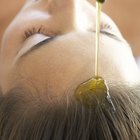
How to Nourish the Scalp

How to Get Rid of All the Tiny Embedded ...

Tea Tree Oil as a Natural Remedy for ...
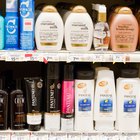
Names of Mild Shampoos
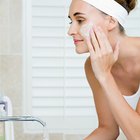
What Is the Difference Between Oily & ...

Baby Oil & Tanning
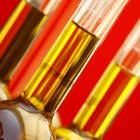
Jojoba Oil Benefits

How to Prevent Pock Holes From ...
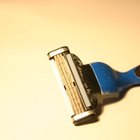
How to Use Noxzema for Shaving
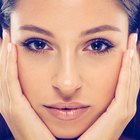
How to Shrink Pores With Proactiv
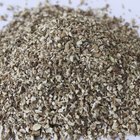
Dandelion Root for Reduced Acne Symptoms

How to Get a Pimple to Go Away Fast

Remedies for Unblocking Stubborn ...
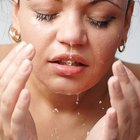
How to Repair Open Pores

Washing a Bald Head
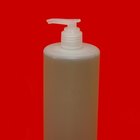
How to Add Citric Acid to Castile Soap

Toxicity of Peppermint Oil

What Are the Ingredients in Proactiv?

Olive Oil Soap for Acne
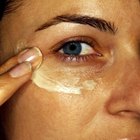
The Best Facial Moisturizer That Won't ...
References
Writer Bio
Jenni Wiltz's fiction has been published in "The Portland Review," "Sacramento News & Review" and "The Copperfield Review." She has a bachelor's degree in English and history from the University of California, Davis and is working on a master's degree in English at Sacramento State. She has worked as a grant coordinator, senior editor and advertising copywriter and has been a professional writer since 2003.
Photo Credits
Olesia Bilkei/iStock/Getty Images